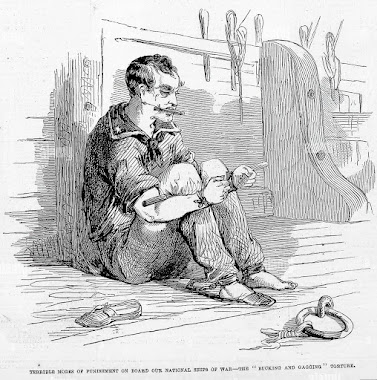A soldier’s letter from prison, July 2, 1863
 |
| Officers of the 1st Wisconsin Heavy Artillery, Battery C (Standing L-R) Capt. John R. Davis, Lieutenant Ezra R. Lisk, (Seated L-R) Lieutenant Fred Ullman, Lieutenant Benjamin F. Parker. |
“Thinking it interesting to you how I came to be in the military prison, I will give you a new addition to Battery ‘C’s history…” [1]
So begins a remarkable letter written by Gustavus A. Peltzer, a soldier in Company C, 1st Wisconsin Heavy Artillery. Dated July 2, 1863, and addressed to a friend named Ellis, the letter offers a rare firsthand account of the tensions, punishments, and personal politics that shaped life within the Union ranks.
Peltzer wrote from the Union military prison in Knoxville, Tennessee, just four weeks after his court-martial. Still processing the experience, his words are raw, immediate, and deeply revealing—not just of his own ordeal, but of the fragile social fabric that held Civil War units together.
“Bucked and Gagged”
 |
| Bucked and Gagged |
The incident that triggered the unrest began on May 14, when Captain John R. Davis [shown in the above photo] ordered three men—Thomas Mooney, Henry Alisop, and Ed Rogers—to be bucked and gagged, a brutal form of punishment. After eleven hours, Rogers collapsed. Sergeant L.C. Morey, fearing for his life, cut him loose.
The punishment sparked outrage. Thirty to forty men marched to the site where the other two were still bound, determined to free them. They asked Morey to release the men. He refused—but didn’t resist when they cut them loose and returned them to their quarters “with a yell.”
Captain Davis, hearing the commotion, appeared “with side arms,” but, as Peltzer dryly noted, ended up “making, to tell the truth, a fool of himself.” The excitement soon died down. But the consequences were just beginning.
Arrests and Accusations
Over the next two days, multiple soldiers were arrested—some for their role in the release, others seemingly at random. Peltzer was among them, though he insists he had deliberately stayed out of the affair, knowing the captain “would like for nothing better than to get such a ‘hold’ on me.”
He was charged not for the May 14 incident, but for something he had said months earlier: telling 2nd Lt. Ed Hewitt that Captain Davis had mistreated a fellow soldier and that he intended to file charges. For this, he was accused of “conduct to the prejudice of good order.”
Other men were charged for offhand remarks or hearsay. One soldier, Christian Hegge, was tried for telling a friend that the men “should have blown out the light and then pitched into the Captain.” The friend reported him. Another, Edgar Wood, was accused based on the testimony of a soldier Peltzer described as lying under oath.
“A Mere Trifle”
Despite the drama, the punishments were minimal. Peltzer and the others were not discharged from the army. All continued to serve until the end of the war in 1865. Even Captain Davis remained in command of Company C and mustered out with his men. He later moved west and died in San Joaquin County, California, in 1901.
But the letter remains a powerful document. It reveals the fragile balance of camaraderie and conflict, the arbitrary nature of wartime justice, and the emotional toll of serving under officers who could wield discipline as a weapon.
A Glimpse into Wartime Justice
Peltzer’s account is more than a personal grievance—it’s a window into the informal and inconsistent justice system that governed Union soldiers long before the Uniform Code of Military Justice was established. His letter reminds us that war is not only fought on battlefields. It’s also fought in barracks, behind prison walls, and in the quiet spaces where soldiers reckon with loyalty, authority, and survival.
There were millions of stories from the Irrepressible Conflict. This was just one of them.
Mac
FYI: If you like this topic, here's another post that looks at a similar situation but with a different result: 'Court- martial and be damned'
Works Cited
[1] "Letter, Gustavus A. Peltzer in Knoxville, Tenn. to Ellis Birch in Chattanooga, Tenn. , 1863 July 2". Civil War Digital Collections, University of Tennessee Knoxville Libraries.
No comments:
Post a Comment